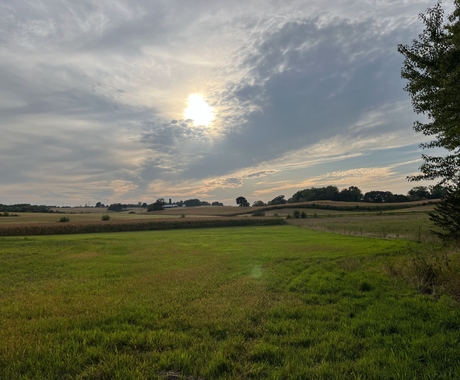Teresa Hoffman, policy communications associate, teresah@cfra.org, 402.687.2100 ext. 1012; or Rhea Landholm, brand marketing and communications manager, rheal@cfra.org, 402.687.2100 ext 1025
WASHINGTON, D.C. – The Center for Rural Affairs applauds the U.S. Senate for passing the Growing Climate Solutions Act. The legislation was passed Thursday on a 92-8 vote.
“Carbon payment programs offer a financial opportunity for farmers voluntarily implementing important conservation on their farms,” said Kayla Bergman, senior policy associate for the Center. “While there has been growing excitement for these programs, we are now at a point where setting standard protocols is necessary.”
Bergman commends the bipartisan leadership on this bill, including Sens. Deb Fischer (R-NE), Joni Ernst (R-IA), and Chuck Grassley (R-IA) for joining Sens. Debbie Stabenow (D-MI), Mike Braun (R-IN), Lindsey Graham (R-SC), Sheldon Whitehouse, (D-RI), and 47 of their colleagues in cosponsorship of this legislation.
“The large group of bipartisan legislators sponsoring this bill, including senators from our heartland states, demonstrates broad support for giving America’s farmers a role in ongoing efforts to address climate change,” Bergman said.
The Growing Climate Solutions Act will establish a certification program through the U.S. Department of Agriculture for private parties who work with producers to receive payments for carbon sequestration.
By developing baseline standards for carbon markets, Bergman said the legislation would help this tool become more effective.
“Carbon markets have tremendous potential, but current versions vary widely in design and structure,” Bergman said. “We all want carbon markets to work. Developing a framework that includes basic standards and requirements is a critical step toward making this happen.”
The companion bill was referred to the U.S. House of Representatives’ Agriculture Committee in April. It will need to pass through that committee and then go to the floor for a vote for the legislation to move forward.





